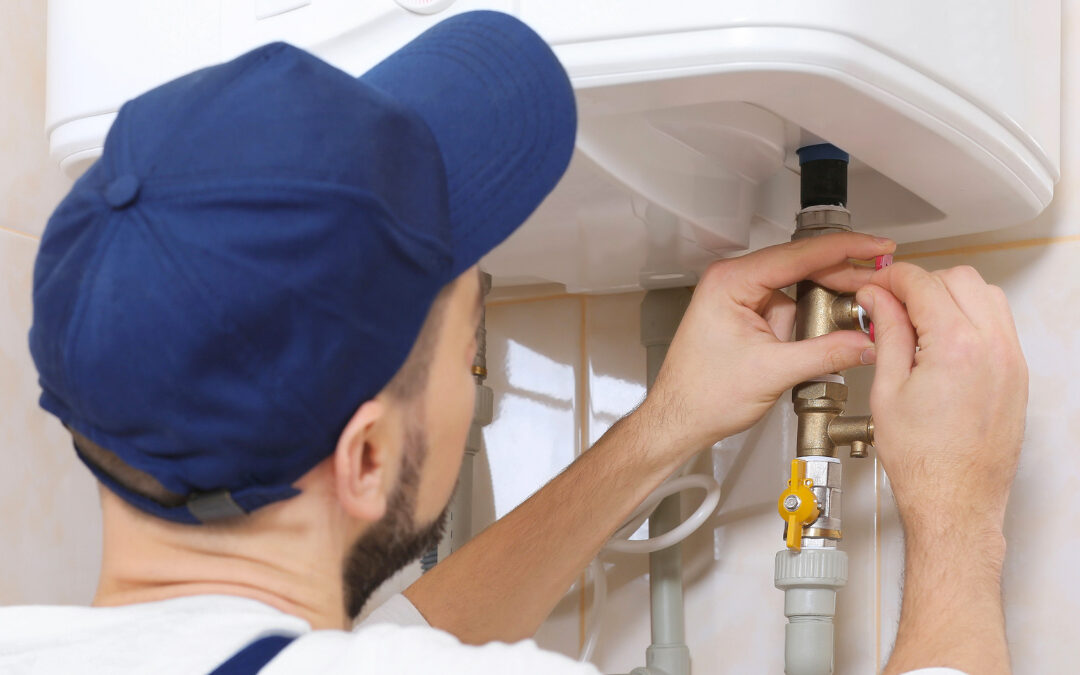Your water heater works hard every day—whether you’re taking a hot shower, washing dishes, or doing laundry. But like any appliance, it has a limited lifespan. Ignoring early signs of failure can lead to increased energy bills, property damage, or a sudden loss of hot water when you need it most.
Here’s how to spot the warning signs that your water heater is on its last leg—and why upgrading may be the smartest (and most energy-efficient) move you can make.
1. Inconsistent Water Temperature
If your water turns cold in the middle of a shower or fluctuates between hot and lukewarm, your thermostat, heating element, or even sediment buildup in your storage tank may be to blame. These issues reduce efficiency and increase the strain on your heating system, often signaling it’s time for a water heater replacement.
2. Discolored, Rusty Water or Black Specs
Water that appears brown or reddish could mean corrosion inside your water tank—a clear sign that the anode rod is failing. If this is ignored, rust may begin to eat through the tank itself, leading to leaks and potential water damage. Water that contains black specs or appears to have debris is another sign that the tank is malfunctioning and needs a replacement. A professional water heater inspection can confirm whether repairs are possible or a tank replacement is necessary.
3. Strange Noises Coming from the Tank
Banging, popping, or rumbling sounds often mean that mineral deposits have hardened at the bottom of the tank. This reduces heating efficiency, increases operating cost, and accelerates wear and tear. These sounds are not only annoying—they’re often an early warning sign that your heater may fail soon.
4. Visible Leaks or Moisture
Any water pooling near the base of your unit or around the pressure relief valve is a red flag. A leaking water heater may indicate tank corrosion, poor seals, or a malfunctioning valve. Left unchecked, this can lead to flooding, mold, or foundation issues—turning a small problem into a major home repair.
5. Reduced Hot Water Supply
If your hot water tank is no longer keeping up with demand, it might be undersized, outdated, or nearing the end of its lifespan. This is especially common when families grow or you add high-demand appliances like a dishwasher or washing machine. Upgrading to a larger storage water heater or tankless water heating system may restore your comfort and reduce your utility costs.
When to Consider a Water Heater Upgrade
The average water heater lasts 8–12 years. If yours is approaching this age and showing signs of inefficiency, an upgrade could:
- Lower your operating cost and utility bills
- Improve your home’s energy efficiency
- Qualify you for rebates, tax credits, or home improvement loans
- Reduce the risk of leaks, breakdowns, and emergency repairs
Today’s options include electric, natural gas, solar water heating, and even air source heat pump models. Each has benefits depending on your home’s needs, your climate, and your commitment to energy conservation or renewable energy.
Upgrade Options to Consider
Tankless Water Heaters:Provide hot water on demand with lower energy use. Ideal for smaller households or those looking to reduce water heater damage and standby loss.
Heat Pump Water Heaters: Use ambient air to heat water—offering high efficiency in warmer climates.
Solar Water Heaters: Use solar power to heat water. May qualify for federal tax credits and are ideal for sunny regions.
High-Efficiency Storage Tanks: Include improved insulation, heating elements, and thermostat controls.
Each system requires proper installation, electrical wiring, and maintenance, so consult a professional to determine the right solution for your home.
Call Drain Terrier for Expert Water Heater Repair or Replacement
Whether you’re noticing strange sounds, poor water pressure, or leaking pipes, Drain Terrier can help. Our certified professionals provide water heater repair, replacement, and installation services across the region. We work with all major types of heaters and can help you choose a system that fits your budget, energy goals, and household size.
Don’t wait until your old heater fails—get ahead of the problem with a trusted team on your side. Contact Drain Terrier today for a consultation, and let us restore comfort and reliability to your home’s plumbing system.
FAQ: Water Heater Upgrades & Warning Signs
1. How do I know if my water heater needs to be replaced?
If your unit is over 10 years old, makes unusual noises, produces rusty water, or struggles to deliver consistent hot water, it’s time to consider a water heater upgrade.
2. What’s the difference between tank and tankless water heaters?
Tank models store heated water, while tankless water heating systems heat water on demand. Tankless systems typically offer longer life spans and lower energy use.
3. Can I switch to solar water heating or a heat pump system?
Yes, if your home supports it. Solar water heaters and air source heat pumps are excellent for reducing your carbon footprint and may offer rebates or tax incentives.
4. Why is my water heater making noise?
Noises like banging or popping usually result from sediment buildup inside the tank. This reduces efficiency and is a sign your heater may be nearing failure.
5. How long does a water heater replacement take?
Most water heater replacements take just a few hours when performed by a professional plumber. It depends on the unit type and accessibility.


